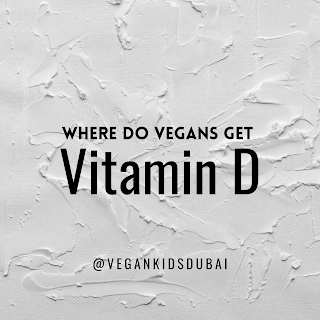Where do vegans get Vitamin D?
Vitamin D is a very interesting nutrient because it can be produced when skin is exposed to sunlight.
These days, people spend most of their day indoors. Therefore, most people cannot rely on sun exposure alone for vitamin D.
Instead, large proportions of the population rely on diet or a supplement to meet vitamin D requirements.
What role does Vitamin D play in the body?
Vitamin D’s primary function is related to the balance of bone health and calcium. It helps the body absorb and retain calcium. When vitamin D is in short supply, bones become brittle, and it can cause rickets in the bones. Vitamin D is also active in cell growth, immune function, and controlling inflammation in the body.
How do we get Vitamin D from the sun??
Vitamin D is commonly referred to as the sunshine vitamin. Contrary to beliefs, sunlight does not contain vitamin D and it is produced when ultraviolet (UV) rays activate a compound in our skin that later becomes vitamin D after it travels to the liver and the kidneys.
You can meet your vitamin D needs by 15 minutes of sun exposure alone, but these days it is not realistic for most people.
Factors That Impact Vitamin D Production from Sun Exposure:
Amount of skin exposed, Age, Time of year, Cloud cover, Air pollution, Sunscreen use and Skin color.
All these factors affect the amount of vitamin D our bodies make from sun exposure. That’s why it’s impossible to make a general recommendation for sun exposure to acquire enough vitamin D. It can only be calculated individually.
Alternatively, many people get vitamin D through natural food sources, fortified foods, or dietary supplements to meet their nutritional needs.
Where else can we get Vitamin D?
Vitamin D is a fat-soluble vitamin that is not found in many foods, vegan or non-vegan.
There are two types of Vitamin D: Vitamin D2 and Vitamin D3
Vitamin D3 is usually found in animal-derived sources and vitamin D2 is found in plant-derived sources. There is not enough research to conclude that one form of Vitamin D is preferable to the other in terms of bioavailability.
The only natural vegan food sources of vitamin D are mushrooms grown under a UV light. Most mushrooms do not contain vitamin D as they grow in the dark.
The other vegan options for vitamin D are fortified foods and beverages including plant-based milks. Remember, unless it specifically says vegan, most vitamin D3 is not vegan. Vitamin D3 often comes from something called “lanolin,” which is extracted from sheep wool. If food or beverages are supplemented with a vegan form of vitamin D, it will usually mention that it is derived from lichen, which is like a mushroom.
How Much Do I Need?
The current recommended daily value for vitamin D is as follows:
0-12 months: 400 IU
1-70 years, including pregnancy and breastfeeding: 600 IU
70+ years: 800 IU
Are Vegans (particularly) at Increased Risk for Vitamin D Deficiency?
No, all people are at risk to be Vitamin D deficient, it has nothing to do with a vegan diet.
Most people are having trouble keeping their vitamin D levels within a normal range. Please note that breastfed infants, older adults, people with limited sun exposure, people with dark skin and people with inflammatory bowel disease all are at a higher increased risk of vitamin D deficiency.
Considerations for vegans
In conclusion, it is difficult for anyone to get a daily vitamin D intake from food. When choosing a supplement, be aware that some types of vitamin D are not vegan-friendly. Vitamin D2 is always suitable for vegans, but vitamin D3 can be derived from an animal source like sheep’s wool or lichen which is a vegan-friendly source. If you do have any worries or concerns, always speak to a vegan friendly general practitioner.

